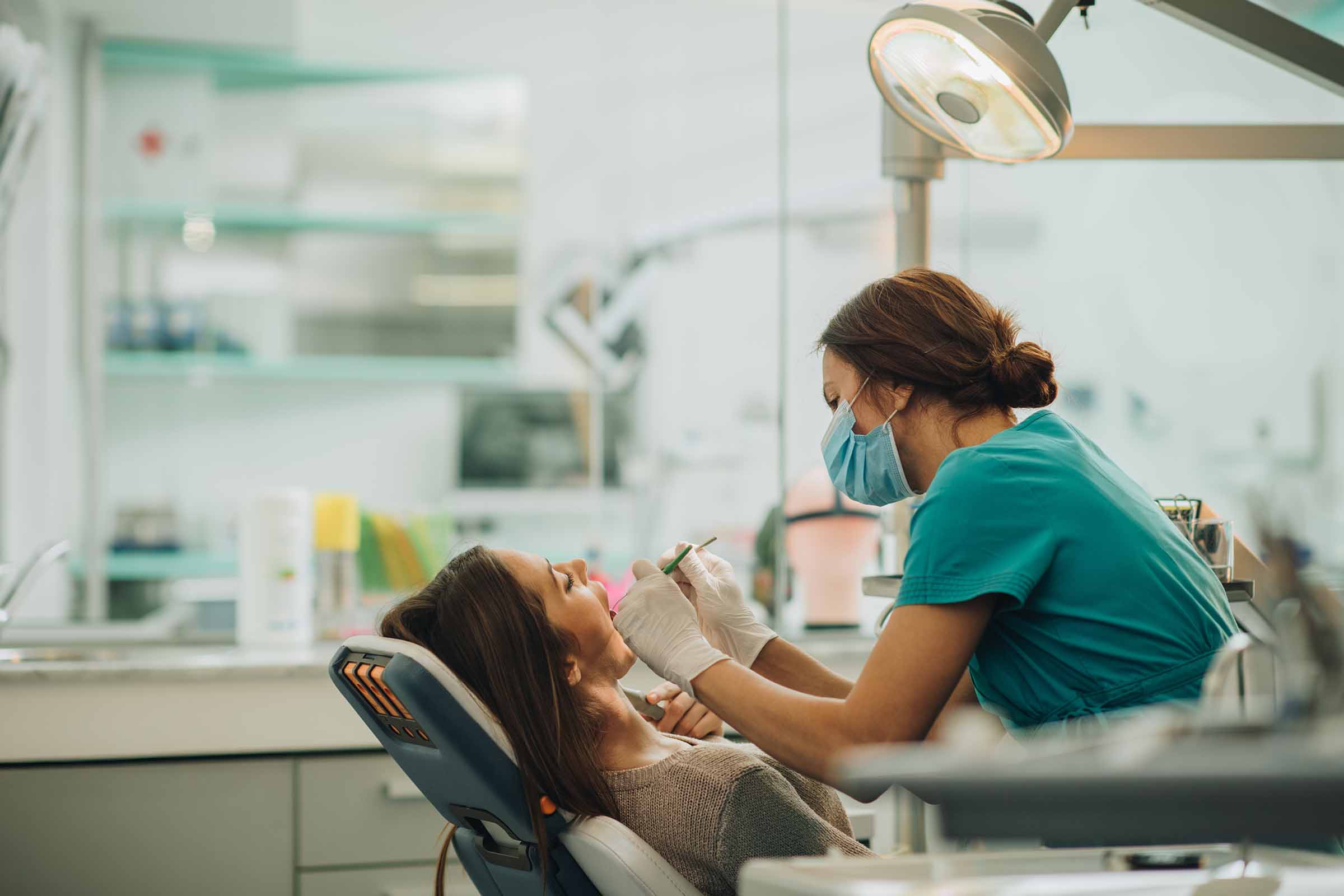Browsing Dental Emergencies: What to Do and Not to Do in Vital Situations
When confronted with dental emergencies, the ability to respond appropriately can be critical in stopping more problems and ensuring the very best feasible result. Understanding what actions to take and what activities to prevent can make a considerable difference in essential scenarios including dental concerns (emergency dentist newport). From toothaches to knocked-out teeth, busted dental fillings, jaw injuries, and dental blood loss, each circumstance requires a certain approach that can influence both temporary and long-lasting dental health and wellness. Comprehending the do's and do n'ts in these defining moments can be the secret to securing your dental well-being.
Immediate Activities for Toothaches
Salt water works by assisting to lower microorganisms in the mouth, which can contribute to the pain and swelling linked with a toothache. It additionally helps to attract out any type of particles or pus that might be present, giving a comforting result on the inflamed tissues.
Along with rinsing with seawater, over-the-counter discomfort medicines such as advil can be taken to help manage the pain. It is essential to follow the recommended dosage directions and speak with a healthcare supplier if the discomfort worsens or persists. Prevent positioning aspirin directly on the tooth or periodontals, as this can lead to chemical burns.
If the tooth pain is or lingers accompanied by other signs such as fever, swelling, or trouble breathing, seek timely oral like address the underlying source of the pain. Early intervention can help stop even more complications and minimize pain.
Managing Knocked-Out Teeth
When dealing with knocked-out teeth, instant action is crucial to enhance the possibilities of effective reimplantation. The initial action is to choose up the tooth by the crown (the white component) rather than the root to avoid damaging the fragile cells.

Trigger activity and correct handling of a knocked-out tooth can substantially affect the opportunities of successful reimplantation, so it is essential to act quickly and properly in such circumstances.
Handling Broken Dental Fillings
Proper maintenance and routine oral check-ups are crucial for resolving broken oral fillings without delay and making sure the durability of your dental job. When a dental loading breaks, it can subject the internal layers of the tooth to bacteria, causing possible infections and additional damage if left neglected. If you experience a broken oral filling, it is crucial to contact your dental professional immediately to set up a visit for repair service.
In the meanwhile, there are some steps you can take to take care of a broken dental filling in the house. Stay clear of chewing on the side of the mouth with the busted filling up to protect against more you could try here damage. Rinse your mouth with cozy deep sea to help cleanse the damaged location and minimize any kind of pain. Non-prescription oral cement can be made use of as a short-lived action to cover the exposed dental filling and protect the tooth up until you can see your dentist.
Bear in mind that a busted dental filling should be resolved quickly to stop problems and maintain the integrity of your tooth. Regular dental check-ups can help find and address any issues with your dental fillings prior to they rise right into even more significant issues.

Handling Jaw Injuries
In situations of jaw injuries, swift and appropriate management is important to alleviate pain and prevent additional complications. Jaw injuries can result from different reasons such as trauma, accidents, or oral treatments. When confronted with a thought jaw injury, it is necessary to seek prompt clinical focus from a healthcare specialist or visit the emergency room.
In the interim before getting specialist treatment, there are a few steps that can be taken to handle jaw injuries. It is important to stay clear of relocating the jaw exceedingly and to avoid from consuming crunchy or tough foods that could get worse the injury.
Furthermore, if there is bleeding related to the jaw injury, gentle stress can be used utilizing a clean fabric to assist manage the bleeding. It is essential to keep in mind that these are temporary steps, and prompt assessment by a healthcare supplier is imperative to examine the extent of the injury and identify the proper course of treatment - emergency dentist newport.
Just How to React To Dental Bleeding
Complying with the monitoring of jaw injuries, addressing oral blood loss quickly is vital in making sure correct care and healing. Oral bleeding can result from numerous causes, such as trauma, dental treatments, or underlying clinical problems. When faced with oral blood loss, it is critical to stay calm and take prompt action to regulate the circumstance.
To respond effectively to dental bleeding, begin by delicately Bonuses rinsing your mouth with a mild deep sea option to clean the location and remove any kind of blood embolisms. If the blood loss persists or is severe, seek professional oral treatment right away.

Verdict
In final thought, it is essential to act immediately and properly when confronted with dental emergency situations. Immediate actions for toothaches, taking care of knocked-out teeth, dealing with broken oral fillings, managing jaw injuries, and responding to dental blood loss are essential actions to ensure proper care and protect against further complications. Remember to seek specialist assistance immediately to address any dental emergency situation effectively and efficiently.
From toothaches to knocked-out teeth, damaged oral fillings, jaw injuries, and oral blood loss, each circumstance requires a certain technique that can influence both temporary and lasting oral health and wellness. If this is not possible, keep the tooth in a container of milk or the individual's saliva to maintain it wet while seeking prompt dental care.
Proper maintenance and routine dental exams are necessary for dealing with damaged oral fillings quickly and making sure the durability of your oral work. Non-prescription oral concrete can be used as a short-term measure to cover the subjected dental filling and shield the tooth up until you can see your dentist.
Immediate activities for toothaches, taking care of knocked-out teeth, dealing with damaged dental fillings, handling jaw injuries, and reacting to oral blood loss are important steps to ensure proper care and stop additional problems.